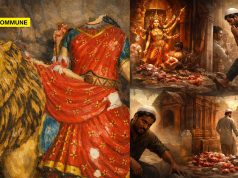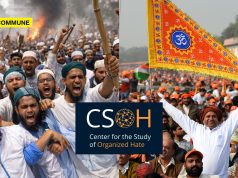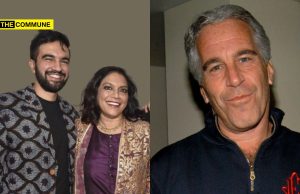
A recent proposal from the centre to modify the provisions for the determination of creamy layer in the OBC category has created stir in the fantasy land of “Periyar”, Tamil Nadu. This move from Delhi has attracted unequivocal condemnation from various regional party leaders in the state including the Chief Minister Edappaadi Palaniswamy and the Leader of Opposition M.K.Stalin.
What does the new proposal really entail?
An expert commission set up by the Central Government under the chairmanship of Justice B.P.Sharma to “examine the issues related to Creamy layer equivalence among the Socially and Educationally Backward Classes (SEBCs)” submitted a report to the Union Cabinet to revise the OBC Creamy layer criterions to rationalise and simplify the calculation process.
Following the report, the Centre has announced that it is looking to increase the ceiling for Non-Creamy layer from 8 lakhs to 12 lakhs per annum earnings in the OBC category. Additionally, as per the proposal, salary and agricultural income will now be counted under yearly earnings for those seeking OBC reservation. The incorporation of salary and agricultural earnings into annual income has gathered criticism from many corners in Tamil Nadu cutting across party lines. But the strongest voice against the recent proposed changes are not surprisingly, from the DMK.
The primary criticism from the DMK camp against the proposal is that it is an attempt to dilute the Mandal gains and desecrate Social Justice to the 40% strong population of India, the OBCs.
This seems to be a humorous analysis of the proposed changes because the very rationale behind triggering these changes is to ensure that the beneficiaries of the OBC reservations hail from the educationally and socially lowermost ranks of the society rather than the same groups becoming the repeated beneficiaries over multiple generations.
But if one was to give a thought on why there is a resistance to this from the Dravidian camp, one shall necessarily have to look at the genesis of the Dravidian Movement.
The Dravidian Movement which is portrayed as a subaltern movement against the Aryan Brahmins wasn’t really as it is portrayed. In reality, virtually all members of the Justice Party were the wealthy landowners and Zamindars of the Madras Presidency. It started off as a struggle against the Brahmins(who populated the bureaucracy) by the “intermediary” castes(who were landowners). The tradition does not seem to be lost today.
The Dravidian Parties still seem to care only about the elites of the OBCs and are ready to brush off the majority impoverished OBC population for its own gains. The Dravidian Movement took away the power structure from the Brahmins and distributed it to three chosen caste groups who happen to constitute 30-34% of the population, essentially a big chunk. Even today, important ministerial births and party positions in both Dravidian parties are occupied by the 3 said groups. Therefore, the reservation policies of Tamil Nadu are essentially mandated by the 3 chosen groups, leaving behind a majority portion of Tamil Nadu deprived of power and most importantly, land and wealth.
The new OBC creamy layer categorisation shall undoubtedly help uplift the poorer caste groups among the OBCs but unfortunately, this itches the Dravidian psyche because of its inherent bias towards a select few caste groups.
OBC reservation has failed to reach those in need
Another criticism the Dravidian cabal places here is that there is no statistical evidence to support that OBC reservations have failed to reach the economically poorer sections of the OBC society.
This is yet another fundamentally flawed criticism from the self-proclaimed descendants of “Periyar”.
Justice Rohini Commission was set up in October, 2017 to recommend sub-categorization of sub categorization of the Other Backward Classes (OBCs) and ensure that marginalized sub castes get due benefits.
The Commission published a shocking report last year which clearly exposes the uneven distribution of the fruits of reservation in the OBC category.
The Commission report reveals as follows:
1) 2,633 castes compete for the 27% OBC reservation quota.
2) 25% of OBC reservation has been availed by a mere 10 sub-castes which is testament to why there has to be a review of the categorisation under this category.
3) Over 983 castes under the OBC category have been able to avail no reservation whatsoever.
Therefore the Justice Rohini Commission has spilled the beans on the lies of those claiming that there is no evidence available to support the new proposal of the Centre.
The report clearly reveals a pattern that involves the beneficiaries of reservation being a tiny minority of the OBC, thus leaving behind a large chunk without any piece of the pie.
Observations made by judges on the question of economic criteria
Another misinformed notion the sons of “Periyar” seem to be carrying is that there can be no consideration of economic criteria whatsoever when it comes to matters of reservation.
The origin of this idea that economic conditions should be shunned while determining reservation has no real, conclusive legal backing except for an observation made by Justice (retd) Rathnavel Pandian in the famous Indra Sawhaney Case of 1992.
While Justice Rathnavel Pandian was of the view that reservation should be based purely on social and educational standards(and not economic), certain other judges in the very same case seem to disagree.
Justice R.M. Sahai in the same case held that the equation of the word “class” as enlisted in Art.16(4) to “caste” would be in violation of Art.16(2) which prohibits discrimination on the basis of “religion, race, caste, sex, descent, place of birth, residence or any of them” and anti-discrimnation as enlisted under Art.15.
Justice Kuldip Singh who was also part of the same case concurred with the Obiter dicta of Justice R.M. Sahai in favour of the conclusion that economic criterion may also be an important aspect in determining deserving groups or classes for reservation on the grounds that Art 16(4) would necessarily have to be read in a manner consistent with Art 15(1).
Therefore, while it can be contested that reservation cannot be employed as a means of poverty alleviation which involves economic criterion, it can be a mere observation, that which is not grounded in law or an established statute.
While we have managed to debunk the skewed notions of social justice of the DMK, some important questions ought to be asked of them.
Some questions for the DMK
Considering the DMK Supremo M.K.Stalin has decided to resist against the inclusion of salary and agricultural income in the yearly earnings for OBC creamy layer of classification, will he be comfortable if the Modi Government decides to continue the old method of classifying Creamy layer for OBCs by excluding salary and agricultural income if the same is followed suit for the ceiling on EWS reservation?
Why is it that DMK, a strong proponent of social justice, field a senior and experienced candidate like A Raja in a reserved constituency (Nilgiris) even till date? Is it simply because that he happens to belong to the Dalit fold? Additionally, will the DMK in subsequent elections consider offering non-reserved constituencies to its alliance partner VCK?
In conclusion, the Dravidian politics which defies the new rules for OBC classification, is a reflection of how either parties since time immemorial tend to favour only the rich, elite, and the politically muscular groups of the Backward Classes while comfortably eschewing the poorer, politically outcast caste groups under the same category. Both the parties work hand in hand in ensuring that the fruits of reservation do not reach the economically deprived castes and sub-castes and instead get retained in the hands of the more powerful and populous castes.
The vote bank politics in Tamil Nadu sadly wishes to keep those living in darkness still in the dark while ensuring the dissemination of social justice for the already wealthy and powerful alone.




